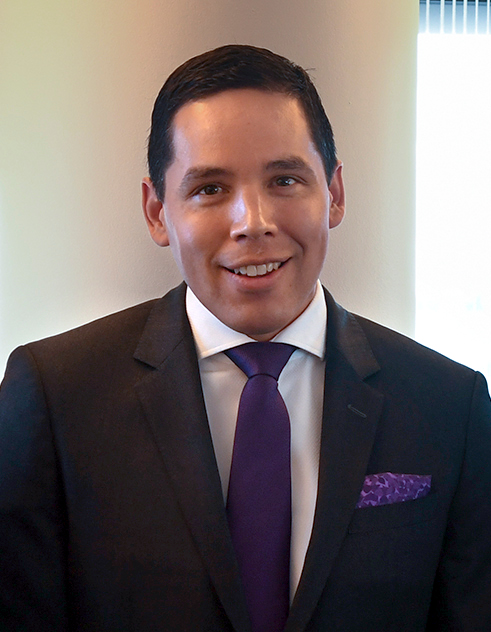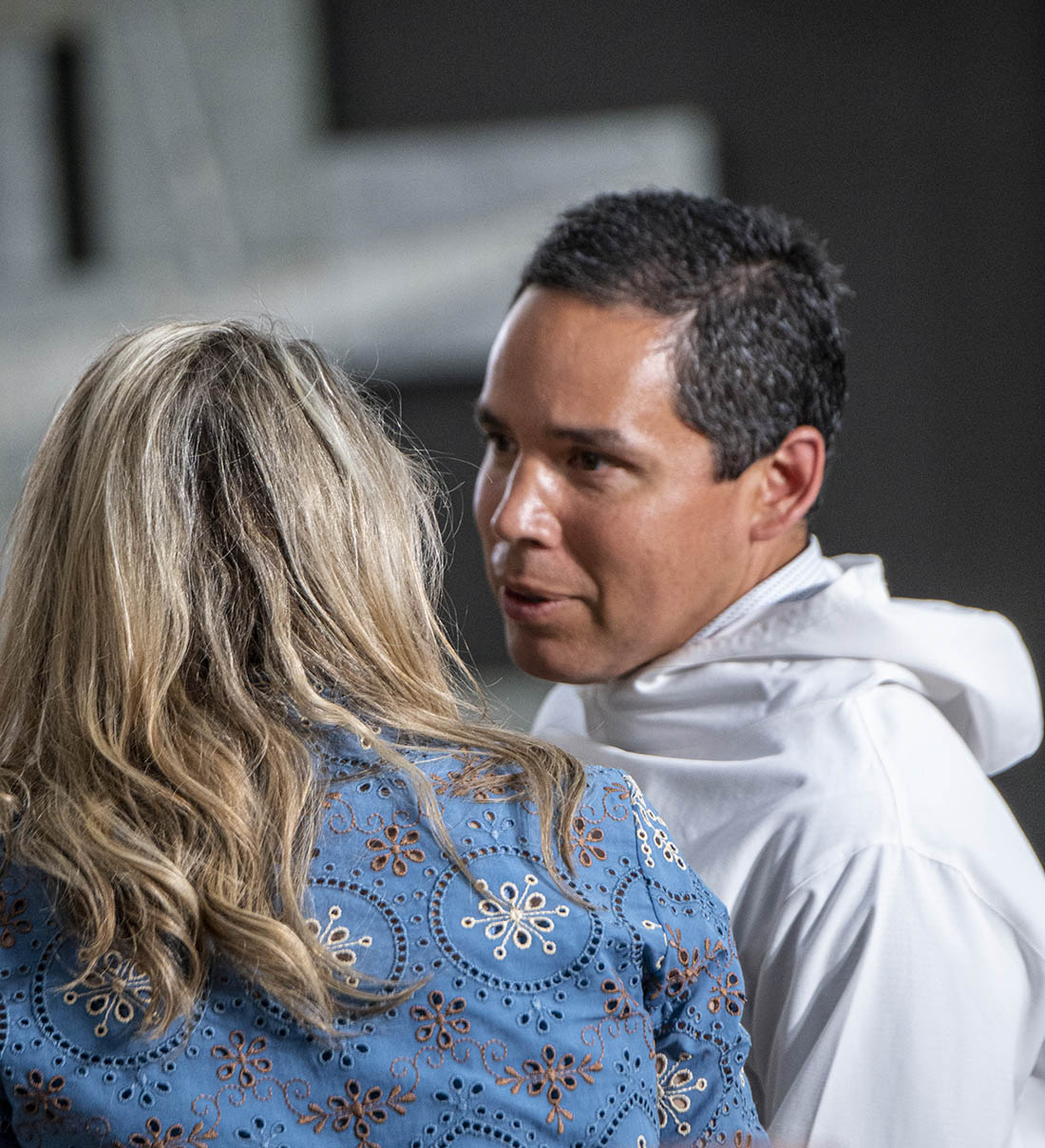Natan Obed, president of Inuit Tapiriit Kanatami, leader (born 1975 or 1976 in Fredericton, NB). Natan Obed is an influential advocate for Inuit and, since 2015, has been president of Inuit Tapiriit Kanatami (ITK). Obed grew up in Nain, northern Labrador, Maine and multiple communities in southern Labrador. He attended university in the United States and then returned to Canada to work for Inuit rights and recognition with Nunavut Tunngavik Incorporated. As president of ITK, he has led initiatives that have advanced an understanding of and support for issues and concerns of Inuit. He promotes similar initiatives as the vice-president of Inuit Circumpolar Council Canada.
Early Days
Natan Obed’s father, Enoch, was seven when the provincial government forced his community to leave Nutak, Labrador, and move south. Enoch was a teenager in a Newfoundland orphanage and residential school when he met Ellen Bryan, a non-Indigenous American university student who was volunteering at the facility. They were later married, and moved to Fredericton, New Brunswick. Obed was born there.
Although his family moved often, suffered substandard housing, and his father mistreated him and his siblings, Obed has fond memories of growing up in Nain, a small community in northern Labrador. When Obed was 12, his parents split. He moved with his mother to Maine. She ensured that he still knew and respected Inuit culture. He considered Nain his home, and his father’s relatives visited him annually while he lived in Maine.
Obed attended Tufts University in Massachusetts. Hockey was an important part of his life. He played defence on the university’s men’s team and with the American Junior A Helena Ice Pirates. In his junior year at Tufts, he won the Shapiro Award to support his work studying Labrador Inuit land claims. He expanded that paper for his senior honours thesis. In 2001, Obed graduated with a degree in English and American Studies.
Nunavut Tunngavik Incorporated
The homeland of Inuit in Canada is called Inuit Nunangat. It encompasses land in Nunatsiavut, northern Labrador, Nunavik, northern Quebec, Nunavut, and the Inuvialuit Settlement Region in the Yukon and Northwest Territories.
After graduation, Natan Obed held numerous positions within Inuit organizations. He spent time working as an environmental policy analyst and director of socio-economic development for Inuit Tapariit Kanatami, and he worked for the Labrador Inuit Association during impact and benefits agreement negotiations (see also Labrador Inuit). After these positions, Obed moved to Iqaluit, where he worked with Nunavut Tunngavik Incorporated (NTI) as a director of social and cultural development. NTI is a non-profit organization that addresses economic, cultural and social issues of concern to Nunavummiut (Nunavut Inuit) in the implementation of the 1993 Nunavut Land Claims Agreement (see also Nunavut and Confederation). He played a role in ensuring that Inuit perspectives on education, housing and government relations were part of the Kelowna Accord, which was designed to close the gap between Indigenous and non-Indigenous standards of living. For six years, Obed also chaired the National Inuit Committee on Health.
Inuit Tapiriit Kanatami
Since its founding in 1971, Inuit Tapiriit Kanatami’s (ITK) vision has been to have Inuit prosper through unity and self-determination, while providing a voice to protect and advance their rights and interests through research, policy advocacy and public education.
Natan Obed ran for the presidency of ITK in 2015. He was criticized for having grown up away and for not speaking an Inuit language (see Inuktitut). He explained, “We don’t choose our childhoods… but we have identities, and we have connections to cultures and societies where our parents are from. I still don’t speak Inuktitut fluently, [and] I may not be the best hunter, but it doesn’t necessarily make me any less of an Inuk.”
Obed won the election, becoming ITK’s youngest president. He was re-elected in 2018 and acclaimed in 2021.
Inuit Tapiriit Kanatami Initiatives
In 2016, Inuit Tapiriit Kanatami (ITK) released Inuit Priorities for Canada's Climate Strategy: A Canadian Inuit Vision for Our Common Future in Our Homelands. After this, Natan Obed undertook a lobbying effort that, in 2019, led to the Canadian government committing $1 million toward implementing the strategy. Obed said, “It is a hopeful, forward-looking plan in the face of potentially catastrophic change that welcomes unique partnerships that are respectful of Inuit rights and knowledge.”
Obed brings attention to inconsistencies and contradictions in the Canadian government’s words and actions. For example, in May 2016, Carolyn Bennett, Canada’s Minister of Indigenous and Northern Affairs, announced at the United Nation’s Permanent Forum on Indigenous Issues that Canada would implement the United Nations Declaration on the Rights of Indigenous Peoples through the “full box of rights for Indigenous peoples” provided by Section 35 of the Canadian Constitution. Obed, however, argued that Bennett was merely continuing the previous government’s promise to consult with Indigenous peoples without recognizing their right to consent. “Consent,” Obed said, “speaks to our right to choose and assert our position, and to have that position influence the outcome of any given decision government takes.”
Obed ensures that Inuit interests are part of the Canadian government’s annual pre-budget consultations. In 2018, he identified housing and health issues as priorities and advocated for assistance in tackling them. As a result of his efforts, for the first time a federal budget specifically recognized the unique needs of Inuit Nunangat, while allocating $500 million to address them.
Obed combines teaching with policy advocacy. This approach is most clear in his collaboration with the federal government to create the Harvesters Support Grant. The five-year program began in 2020 and is sending $28.6 million to Inuit communities to support local harvesting of traditional foods as part of an effort to address issues of food insecurity (see also Inuit Country Food in Canada). While welcoming the program, Obed worked to promote an understanding that harvesting food is more than just hunting. Rather, it is an essential way in which Inuit understand and interact with the land.
Obed travelled with other Indigenous leaders and led the Inuit delegation to Rome in 2022 for a historic meeting with Pope Francis. The Pope later apologized for the Catholic Church’s role in the mistreatment of Indigenous peoples in Canada, particularly regarding residential schools.
Obed often acts as a cultural ambassador in his efforts to have Canadians and the Canadian government better understand and respect Inuit needs and goals. In 2023, for example, Obed escorted environment minister Catherine McKenna on a three-day tour of Nunatsiavut. He explained Inuit culture and history, including how in the 1950s the federal government had forced the relocation of several Inuit communities. At the tour’s conclusion, McKenna thanked him and said that prior to the trip, she “didn’t really understand the concept of Inuit Nunangat.”
Obed is also vice-president of Inuit Circumpolar Council Canada. Its goal is to promote the interests of Inuit as a single people across Canada, Russia, Alaska and Greenland. Through the Inuit Circumpolar Council, Obed ensures cooperation with ITK in presenting Inuit issues and ideas to the Canadian government and on the international stage.
Obed splits his time between Ottawa and Iqaluit, where his wife, Letia, and sons, Panigusiq and Jushua.

 Share on Facebook
Share on Facebook Share on X
Share on X Share by Email
Share by Email Share on Google Classroom
Share on Google Classroom





